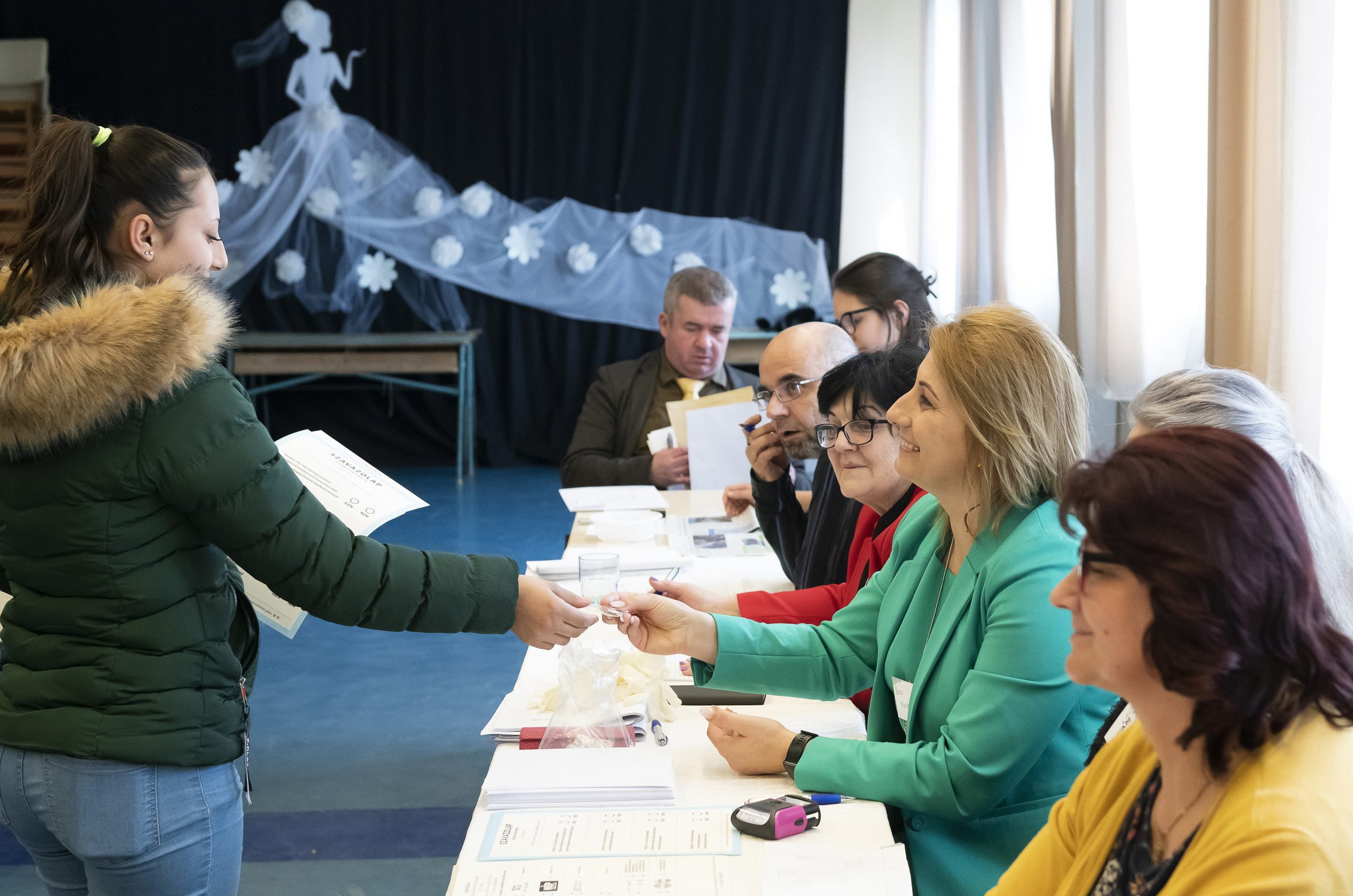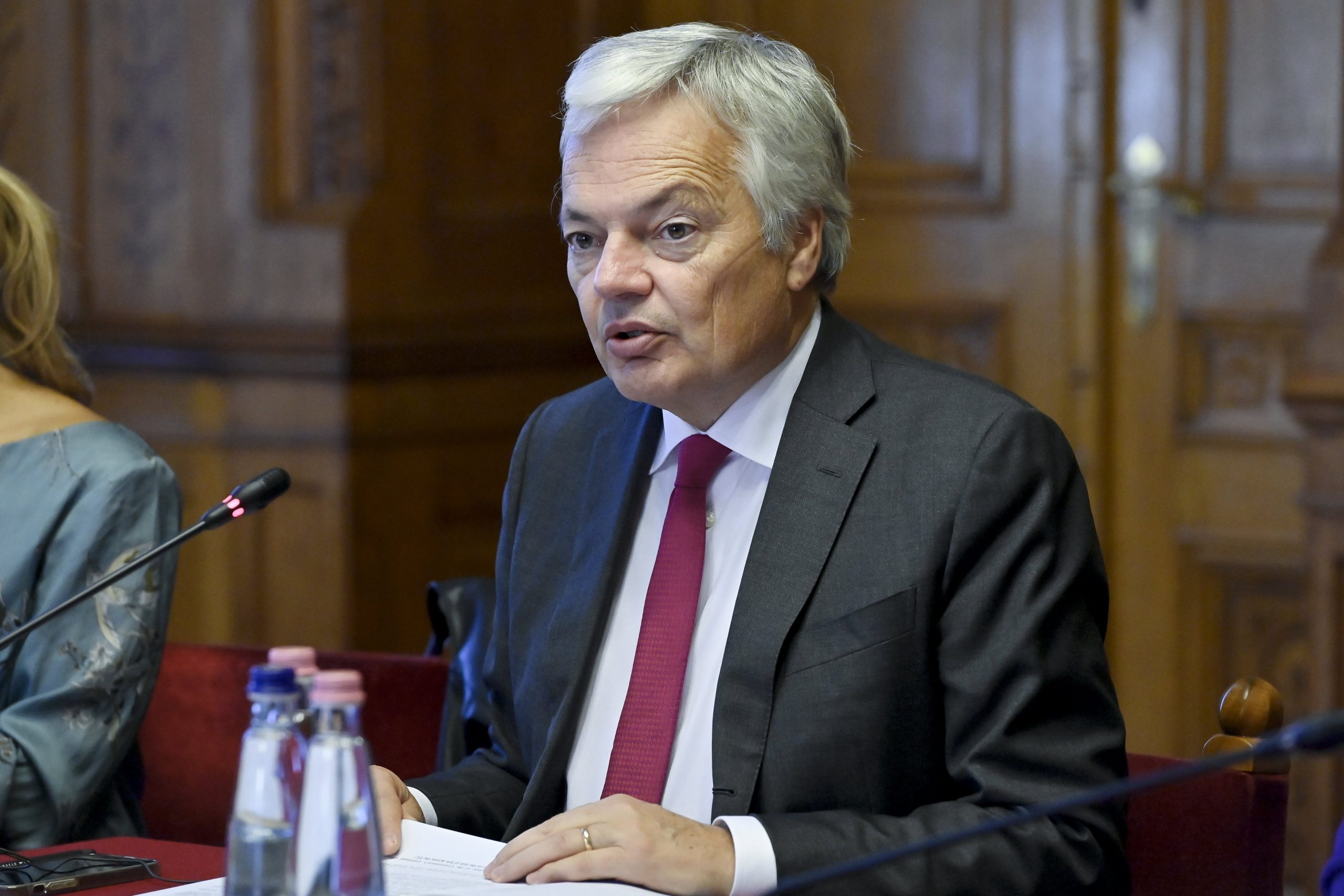
The lack of transparency and oversight over campaign finance favored the ruling alliance, OSCE election and referendum monitor Kari Henriksen said.Continue reading

The parliamentary elections in Hungary in April were conducted in order, with voters given distinct alternatives to participate in a democratic procedure – but the European Union’s concerns still persis, especially with regard to biased media and non-transparent campaign financing, said Didier Reynders, justice commissioner of the EU, late on Monday, citing a preliminary report by election observers of the Organisation for Cooperation and Security in Europe (OSCE).
Speaking after a conference of EU affairs ministers, the commissioner noted concerns about the independence of Hungary’s media authority, whose members were delegated exlusively by the ruling Fidesz. He also noted that the Hungarian Media Council had refused to renew the license of Klub Radio, which was subject to an ongoing EU infringement procedure.
Reynders welcomed the fact that Hungarian judges and prosecutors had received a pay raise, as well as a new law ensuring compensation for delays in civil procedures.
Reynders, however, said he “could not report any positive developments” concerning the state of rule of law in Hungary, but stressed that the European Commission was ready to continue cooperation with Hungarian authorities to address the issues they perceive. He also said that “We will continue to monitor the development of the rule of law in Hungary. We thank the French Presidency for keeping this on the agenda and we will continue to do so under the next Czech Presidency.”
Reynders also added that although they did not reach any sort of agreement at the negotiating table, this dialogue with the Hungarian government is growing “deeper” with each EU Presidency. Czech EU Affairs Minister Mikuláš Bek, who was also present at the briefing, stressed that the atmosphere at Monday’s meeting was much more constructive than at previous ones.
Other issues discussed included corruption and conflict of interest in Hungary, freedom of expression and association, and “the law on the upbringing of children and its consequences for the LGBTI community in Hungary”.
The Commissioner added that the Commission is paying attention to recent developments in the judicial review of administrative decisions, as well as to the application of the legal framework concerning state of emergencies by governments. He also drew attention to the planned tenth amendment to the Fundamental Law, which would extend the passage on emergencies to cover humanitarian disasters and war in a neighboring country.
Minister of Justice Judit Varga also posted about the meeting on her Facebook page. She wrote:
“Europe’s tired, sick horse has been back on the agenda… Today’s Council meeting brought back the Article 7 procedure, which has been drowning in apathy in the last four years, although in the current challenging situation, the EU could have more pressing tasks to deal with.”
Referring to the general election in Hungary she said “on April 3, it was proved that the Hungarian people do not share the concerns of the left-liberal side.”
According to Varga, “the Hungarian government had already answered all the questions, though they all went unacknowledged.”
“We, in any case, remain committed members of the community, at the disposal of member states and EU leaders. We can only encourage them to appreciate the constructive attitude of our country!,” the Justice Minister concluded.
Featured image via Szilárd Koszticsák/MTI